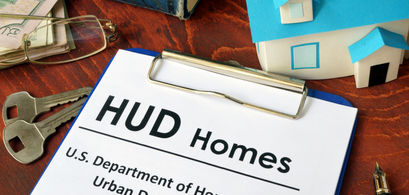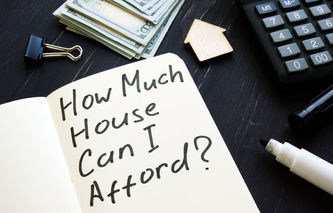When the Department of Housing and Urban Development was created back in 1968, their objective was to help manage federally-subsidized housing, and develop new communities in urban areas.
Today, HUD's mission is to create strong, sustainable, inclusive communities and quality affordable homes. They run voucher and grant programs as well as Good Neighbor Next Door, and this depth of expertise has increased consumer interest in buying HUD homes.
HUD Homes and Foreclosure
One of the objectives of HUD is to help individuals realize the satisfaction that comes with owning a home; they do this by offering FHA-backed loans to qualified applicants. Since many of the individuals seeking assistance from HUD are first time home buyers or "high" risk mortgage applicants, FHA insurance allows lenders to offer reduced rates to these same individuals. Without the risk of default on the loan, the lender can pass those savings on to the mortgage applicant.
If this new homeowner fails to make their mortgage payments, and the home goes into foreclosure, the FHA pays the lender's claim on the property. Essentially, they pay off the remaining balance, or principal, on the mortgage plus any collection expenses incurred by the lender. When this happens, ownership of the home is transferred to HUD; this is the process whereby they obtain their homes.
Appraised Values
Once HUD takes ownership of a home, they turn it over to their Property Disposition Department. This group makes sure the home is protected from vandalism or other types of damage. The Property Disposition Department then determines if the home is going to be sold through HUD or a real estate broker.
These homes are then professionally appraised, whereby the price is adjusted to reflect the local housing market and the cost of any repairs. Generally, HUD homes are in the low-to-moderate price range for a given area.
Repairs and Financing
HUD does not make repairs to homes; they are sold "as-is," and without warranty. New owners are responsible for making any repairs or improvements they deem necessary. These properties are also sold on a "cash" basis. Bidders should not expect to automatically obtain financing through HUD following a property sale; they need to work with a lender to have financing available if successful in the bidding process.
If the winning bidder is not able to secure the financing and close on the home, they can lose any and all of the deposit money submitted with the bid.
Real Estate Agents and Brokers
Individuals interested in buying a HUD home need to work through a local real estate agent or an authorized HUD broker. A list of authorized agents throughout the United States is available on the HUD website. These agents are provided a new list of homes available for sale weekly.
Once a list of available properties has been obtained, follow the same process outlined in our series for first time home buyers. This series provides a good foundation for anyone that's new to the real estate market and wants to learn more about the purchasing process.
Bidding on Homes
If a desirable home is found, a bid needs to be submitted through a HUD agent. Normally, these homes are sold during an Offer Period, after which bids are opened and the highest "reasonable" bid is accepted. The local HUD agent is responsible for notifying successful bidders.
That agent will help winners to complete the required paperwork. HUD will then provide a settlement date, which is normally 30 to 60 days in the future. During that time, successful bidders will need to finalize their financing arrangements, and close on the home. If bidders are not able to successfully close in this timeframe, they may lose any or all of their deposit.
Homes as Investments
HUD's "dream" is that every American family owns their home, which means they are very interested in selling properties to individuals and families that plan to live there too. Homes sold during the Offer Period first go to buyers that plan to use the home as their primary residence for at least 12 months. Homes not sold after this timeframe are then offered to all buyers, including those interested in purchasing the home for investment purposes.
Finally, HUD also offers a special home buying program known as the Good Neighbor Next Door to teachers, firefighters, emergency medical technicians and law enforcement officers that are willing to live in the neighborhoods in which they work.


